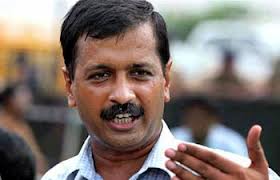
New Delhi, August 1: After a week of fasting, the health of Team Anna members Arvind Kejriwal and Gopal Rai deteriorated on Tuesday. Despite doctors advising hospitalization, the two refused to end their fast and warned the government against any attempt to force-feed them.
Tests showed both activists had elevated ketone levels, indicating that the body was breaking down stored fat. Rai, whose ketone level was in the danger zone (four plus), has been vomiting frequently.
"I am warning the government to not try to arrest and hospitalize us. The consequences will be bad," said Kejriwal, questioning the grounds on which he could be arrested.
"My lawyers said I could be arrested for attempt to suicide. This law was made in 1860 and despite that Mahatma Gandhi use to hold fast. We never heard that he was forcefully arrested. Is this government worse than the British Raj?" asked Kejriwal.
A senior doctor who examined the two said they needed immediate medical attention. "Both of them need to be administered intravenous fluids because the rising ketone levels may affect organs like the heart and kidney," the doctor said.
With the government silent on the agitation and Team Anna refusing to budge on their demands, the stage seems set for a confrontation.
In his evening speech, Anna made a reference to the government's apathy, and said that their visit to the fasting venue would be a 'kalank' (shame). "The government said no minister will come here, or try to stop the movement. But there's no need for corrupt ministers to come here anyway," he said.
Addressing apprehensions that a Lokpal would not end corruption, he said, "At least bring the Jan Lokpal Bill and see what it does. It may not end corruption 100%, but will definitely bring it down by 60-65%." He added that ministers like P Chidambaram would be behind bars had there been a strong Lokpal.
The Gandhian also said when the time is right, he would return his Padma Bhushan. Anna remained on stage throughout the day, but both Kejriwal and Rai stayed in their enclosures off the dais.
Despite the declining health of the fasting activists, footfalls dwindled at the protest venue on Tuesday. Apart from the fact that it was a working day, rain and chaos resulting from the power grid failure also kept many away during the first half of the day. But by evening, the crowd had swelled to about 4000 protesters. Large groups of schoolchildren could be seen in their uniforms.
At around 6pm, actor Ranvir Shorey made his way to the protest, and was seated next to Kiran Bedi on the stage. During his speech, he urged Anna and his team to continue the campaign, but to leave the 'anshan'. He also motivated the people to step up and actively participate.
"This is about corruption, which has led to so many problems, whether it's bad roads, lack of education, barren land or malnourished children. We have truth on our side, and it is more powerful than corruption. It may take time and perseverance, but I'm willing to come even when I'm as old as Anna," he said.
Some protestors undertook drastic measure to show their support for the cause. Satyanarayan Sisodia, a farmer from Mathura, was lying half naked on the thorny branches of a babul tree. "If Anna Hazare and his team can undertake such troubles then so can I," said Satyanarayan. He claimed to be on fast since July 25. Some even cycled or walked for days from their homes to reach the venue.
Large groups of protesters also organized impromptu marches. One group walked from the venue to ITO, from where they marched back holding candles and torches. After the evening speeches, another group took out a rally to Connaught Place and back.





Comments
Add new comment